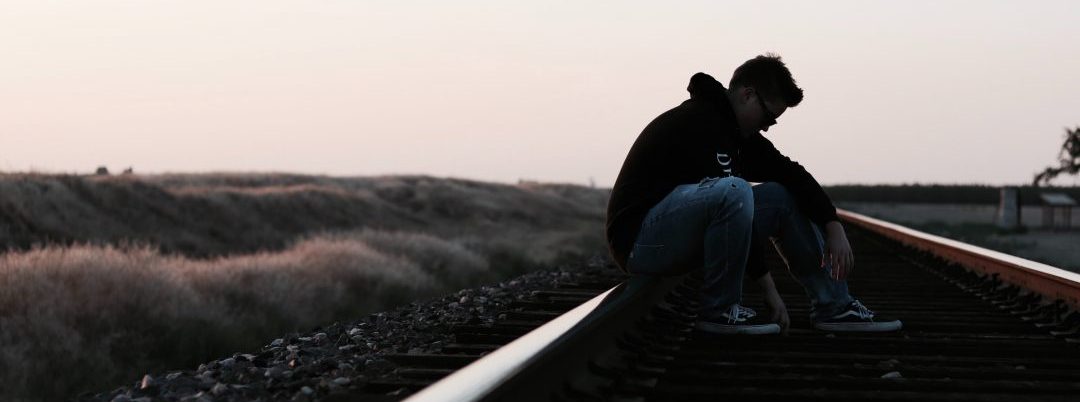
- PTSD can be divided into four phases: the impact phase, the rescue phase, the intermediate recovery phase, and the long-term reconstruction phase.
- The impact phase encompasses initial reactions such as shock, fear, and guilt.
- In the rescue phase, the affected individual begins to come to terms with what has happened.
- The intermediate recovery phase is characterized by one’s adjusting to normal life again.
- Long-term reconstruction is all about rebuilding and continuing to deal with the aftermath of the trauma.
Most of us are familiar with the term “PTSD” (or posttraumatic stress disorder), but our knowledge doesn’t extend much further. We know that it can involve frightening flashbacks and nightmares. That war veterans and assault victims are at a heightened risk of developing the illness. But do we have a clear idea of how this illness unfolds and how it might affect victims over time? If you do, great. If you don’t, you’re going to! Courtesy of myself and Dr. Sal Raichbach, a licensed clinical social worker at Ambrosia Treatment Center. “Posttraumatic stress disorder is comprised of four phases: impact, rescue, intermediate recovery, and long-term reconstruction,” Raichbach explains. “As the individual passes through these stages, symptoms can come and go. These phases aren’t fixed though, and individuals can pass from one into the other during their recovery journey.” Now, keeping that in mind, let’s delve into these four phases.
Impact
This first phase—the impact phase—typically occurs soon after the individual has experienced or witnessed the given traumatic event. It can last as little as a few hours, but may also persist for much longer, depending largely on the severity of the event. For example, someone who has lost their home in a fire may stay in the impact phase for a longer period of time, whereas an individual who witnessed a robbery may experience a shorter impact phase because they can physically escape that nightmare and return safely home. In either and any regard, affected individuals typically experience the following…
- Shock
- Fear
- Helplessness
- Guilt
- Anxiety
- Hypervigilance
Rescue
The next phase is the rescue phase, whereas the individual starts to come to terms with what has happened. This might involve returning to one’s home to assess damage or talking to other survivors—it’s about acknowledging what has happened in one capacity or another. That’s not to say, however, that one fully processes the trauma in this phase—they are still dealing with the initial shock and distress. And they typically experience a range of difficult emotions as well as mental and physical effects. These effects include…
- Denial
- Confusion
- Anxiety
- Flashbacks
- Nightmares
- Despair
- Hopelessness
- Sadness
- Anger
- Numbness
Intermediate Recovery
The intermediate recovery phase is characterized by one’s adjusting and returning to “normal” life again. Once the individual has fulfilled his or her basic safety and survival needs—which is often difficult after one has experienced this high level of trauma—they can begin to cater to other needs that emerge. In addition, this stage often involves addressing new and ongoing adversities, as well as being humbled by an outpouring of love and support or disappointed by a lack thereof. It can ultimately be broken down into two sub-stages:
Altruism: The affected individual is amazed by the support and love they receive from others. So much so that they are inspired to take action and help others, too. They might also feel uncomfortable or hesitant expressing any negativity because they don’t want to appear ungrateful for all that has been done for them.
Disillusionment: This substage is just the opposite of the previous. Rather than feeling overwhelmed by love and support, the individual feels disappointed by the lack of a response. On the flip side, one might experience the effects of this substage when the support seizes, and they realize they’re on their own to deal with the remainder of the mess.
The effects we talked about in the last phase also often continue on into this stage. One may experience physical symptoms such as fatigue and/or sleep disturbances, as well as stress reactions like irritability.
Long-Term Reconstruction
As one might assume, this phase is all about rebuilding and continuing to deal with personal post-event problems. As an individual moves into this phase, they may become concerned about their future, which can present as…
- Fear
- Resentment
- Depression
Additionally, the meaning that one assigns to the traumatic experience can have long-term effects on their mental and emotional wellbeing—which makes talking about the event and coming to terms with the trauma one has experienced extremely important, as explained by Raichbach: “If an individual’s PTSD isn’t adequately treated, the symptoms can last for years after the event. If the emotions and memories of the event aren’t processed, they can have severe mental health consequences.” He goes on to say that processing the memory with help from a mental health professional is vital to long-term recovery.
Let’s keep in touch! Sign up to receive our newsletter:
Start a Relationship with An Exceptional Counselor
- Skilled and caring professional counselors
- Accepting all major and most insurances
- High-touch customer service & premium benefits
- Same- or next-day appointments
- Ultra-flexible 23.5hr cancellations















It is very easy to say ‘go get help’. NOT easy to get it. I’m senior woman. Three years ago I had a ruptured aorta in tummy. Due to blood loss I had a cardiac arrest. It took several minutes for them to resuscitate me and lucky I was in the ER when event happened. I have severe ptsd…every symptom ever mentioned. Am totally numb when I should be grieving the loss of 3 siblings who died during the last year. My dear sons live far from me and have never quite understood my problems. I have every undesirable symptom including anger, impatience, depression and hyper awareness. I’m losing the few friends I had. n nIt seems no one care enough to look up ptsd. All say things they should not say, like we all have problems, sleep problems and pains here and there. I would like to end it all, and am considering trying to get the covid virus. With my other health issues I would be gone quite quickly. I need talk therapy, not a psychiatrist to give me more antidepressants. Thanks for listening.
I’m so sorry to hear about what you are going through. If you are at risk of hurting yourself or others, please immediately call 911 or go to the nearest Crisis Center or Emergency Room.
well what can i say im ex army iv done a lot of things i regret and have daily/nightly flashbacks these are gaining in vividnouse on a nightly occurance in nightmares /dreams im struggling to walk down a street at times as the smallest thing as a car back firing will make me jump/drop to the ground people cant see the scars i carry as physically there not there
Though i might not be able to understand how much pain you are going through since its too much to imagine, i must say that am proud of u for making it till here. nothing is your fault. sometimes things do happen and i hope you keep fighting and contact some professional for help.